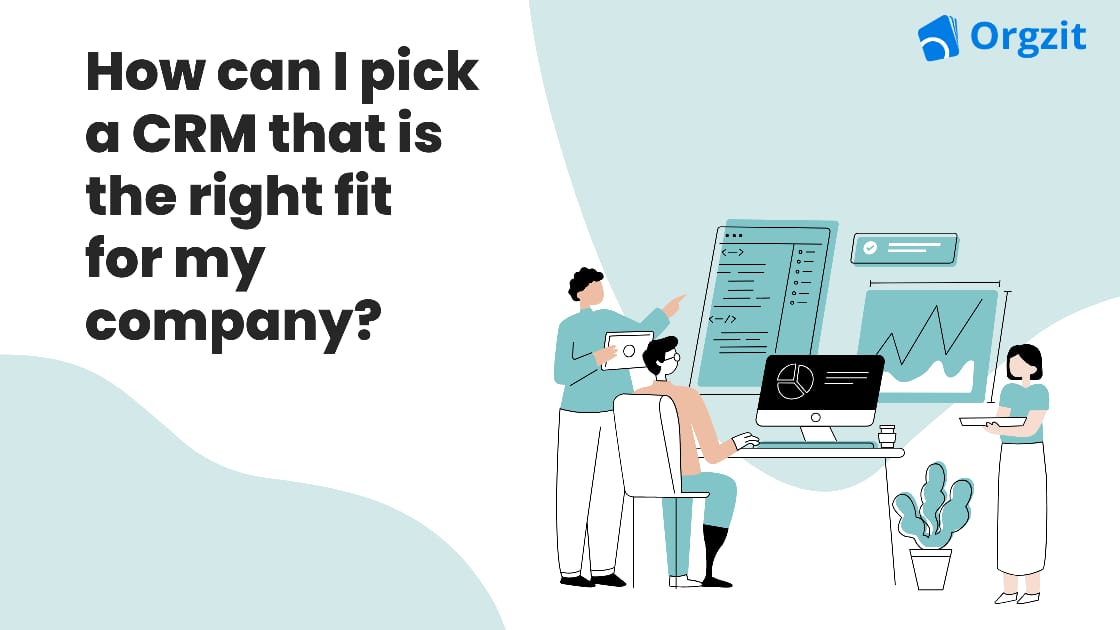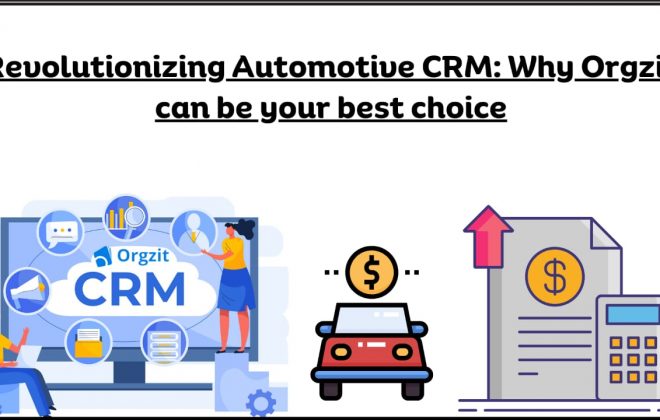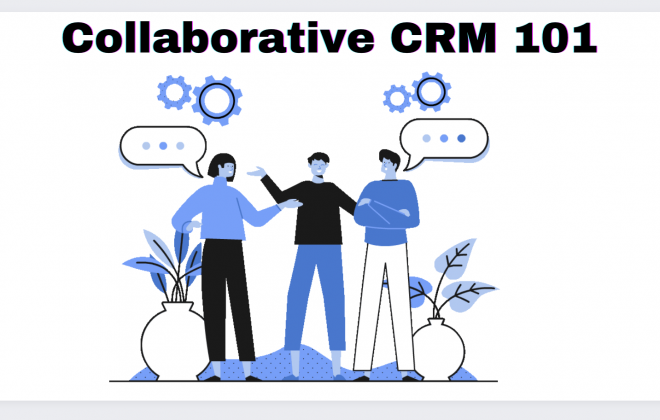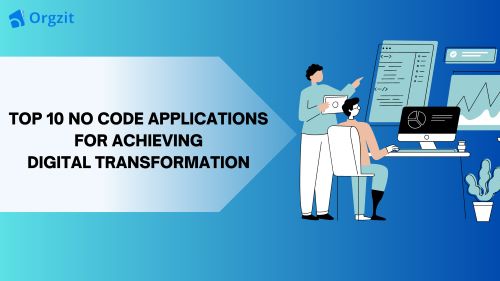Why Company Size Matters in CRM Selection?
Selecting the right CRM based on company size is really important for efficiency and scalability. Wondering why? Let me help you understand this further.
Just like how people of different ages need clothes of different sizes, companies of various sizes differ in their business needs as well.
On one hand, small businesses can mainly benefit from user-friendly interfaces and cost-effectiveness, whereas larger enterprises often require advanced features, customization, and good integration capabilities to manage complex operations and a larger user base.
Thus, choosing the right CRM to fit the specific size, needs, and growth potential of the company ensures optimal functionality and a return on investment.
The Importance of a CRM for Businesses of All Sizes
In today’s competitive business landscape, customer relationship management (CRM) has become an essential tool for companies of all sizes.
A CRM system helps businesses effectively manage and nurture their customer relationships, leading to increased customer satisfaction, improved sales performance, and enhanced overall business growth.
Regardless of the size of your company, whether you’re a small startup or an established enterprise, it is crucial to recognize the significance of implementing a CRM solution.
The benefits extend beyond just organizing customer data; a well-chosen CRM can streamline processes, improve communication, and provide valuable insights to drive strategic decision-making.
In conclusion, implementing a CRM system is essential for businesses of all sizes.
It empowers companies to build stronger relationships with customers, improve sales and marketing efficiency, and drive overall business success.
However, it is crucial to choose a CRM solution that aligns with your company’s specific needs and objectives.
In the following sections, we will explore the key considerations in selecting the perfect CRM solution based on your company size.
Assessing your company’s size and needs
When it comes to choosing the perfect CRM (Customer Relationship Management) system for your company, it’s essential to assess your company’s size and needs.
First and foremost, consider the size of your company! Understanding the scale of your business will determine the complexity and functionality required in a CRM system.
Next, evaluate your specific needs.
Ask yourself about your goals and objectives.
It’s vital to choose a CRM that aligns with your business objectives and can cater to your specific requirements.
Additionally, consider the scalability of the CRM system. It’s important to choose a CRM that can adapt and scale alongside your business, ensuring long-term success and efficiency.
Lastly, don’t forget to factor in your budget.
By thoroughly assessing your company’s size and needs, you can narrow down your options and find the perfect CRM system that fits your business like a glove.
Remember, choosing the right CRM is a strategic investment that can streamline your operations, improve customer relationships, and ultimately contribute to your company’s growth and success.
Understanding the different types of CRMs available
When it comes to choosing the perfect CRM (Customer Relationship Management) system for your company, it’s essential to understand the different types available.
CRMs can vary greatly in terms of features, functionalities, and suitability for different company sizes.
SMB CRMs: Basic CRMs are typically designed for small businesses or startups with limited budgets and simpler needs. They are user-friendly and cost-effective, making them an ideal choice for businesses just starting their CRM journey.
Mid-range CRMs are suitable for medium-sized companies that require more advanced functionalities.
They strike a balance between affordability and functionality, catering to the needs of growing businesses.
Enterprise CRMs: Enterprise CRMs are designed for large corporations and organizations with complex sales processes and a higher volume of data.
Industry-Specific CRMs: Some CRMs are specifically tailored to serve particular industries, such as real estate, healthcare, or finance.
They can streamline processes and provide industry-specific insights, making them a valuable choice for businesses operating in niche markets.
Determining the right type of CRM for your company involves considering factors such as your company’s size, budget, specific needs, and scalability.
Choosing a CRM that aligns with your business goals and growth plans will ensure a seamless implementation and maximize the benefits for your organization.


Key considerations for small businesses
When it comes to choosing the perfect CRM (Customer Relationship Management) system for your small business, there are a few key considerations that can make all the difference.
Budget-friendly options
When evaluating budget-friendly CRM options, it’s essential to consider not only the upfront costs but also any additional expenses such as implementation, training, and ongoing support.
No matter the size of your company, you want a CRM that is intuitive and user-friendly, ensuring that your team can quickly adapt to and utilize the system effectively.
Look for a CRM that offers easy integration with your existing systems and tools and offers levels of customization.
Ease of use
By placing a strong emphasis on prioritizing ease of use when choosing a CRM, you ensure a seamless integration into your company’s operations.
This user-friendly approach facilitates quick adoption by your team, allowing them to effortlessly manage customer relationships and drive business growth.
The simplicity of use not only reduces implementation challenges but also encourages widespread acceptance, maximizing the CRM’s effectiveness in enhancing communication and streamlining processes.
Essential features for small teams
Essential features that small teams should look for in a CRM are contact management, tasks, and activity management.
Integration capabilities are also vital for small teams. Look for a CRM that allows you to add custom fields, create personalized pipelines, and tailor the system to match your team’s workflow.
By focusing on these essential features for small teams, you can find a CRM that is the perfect fit for your company size.
Remember, the goal is to choose a CRM that enhances your team’s efficiency, improves customer relationships, and ultimately helps your business grow.
Key considerations for medium-sized businesses
When it comes to choosing the perfect CRM for your medium-sized business, there are several key considerations that can help guide your decision-making process.
Scalability and growth potential
As your business expands and evolves, you want a CRM that can seamlessly accommodate your changing needs and support your growth.
One of the key aspects of scalability is the ability to handle an increasing volume of data and users.
A scalable CRM should have the ability to integrate with other tools and systems, such as marketing automation or customer support software, to provide a comprehensive solution for your business needs.
Another aspect to consider is the CRM’s capacity to support multiple users and teams.
Moreover, it is crucial to evaluate the CRM vendor’s track record and commitment to innovation.
Integration capabilities with existing systems
Before making a decision, take the time to evaluate your current systems and identify the key functionalities and data that need to be integrated with the CRM.
Whether it’s your email marketing software, accounting system, or customer support platform, seamless integration between these systems can streamline your processes and provide a holistic view of your customer interactions.
A CRM with robust integration capabilities allows for automatic data syncing and real-time updates across platforms.
This means that you can access the most up-to-date customer information without having to switch between multiple systems or manually enter data.
Furthermore, integration capabilities enable better data analysis and reporting.
By consolidating data from various systems into your CRM, you can gain deeper insights into customer behavior, identify trends, and make informed business decisions.
Read this article to understand How crm will work with other software crm integrations
During the selection process, ensure that the CRM vendor provides documentation or support for integrating their system with your existing tools.
Advanced features for sales and marketing teams
It is always better to consider advanced sales and marketing features like lead scoring and marketing automation.
Look for a CRM that seamlessly integrates with your existing marketing tools, such as email marketing software or customer support platforms. Consider what functionalities will help them achieve their objectives more efficiently and effectively.
By selecting a CRM with advanced features tailored to your company size, you can empower your teams and drive growth for your business.


Key considerations for large enterprises
Customization and Flexibility
When it comes to choosing the perfect CRM for large enterprises, there are several key considerations that need to be taken into account. As a large organization, you have unique needs and requirements that may differ from those of smaller businesses. Here are some factors to consider when selecting a CRM for your enterprise:
Every business has unique needs and requirements, and a one-size-fits-all CRM solution may not be the best fit for your company.
Customization allows you to tailor the CRM system to align with your specific business processes and workflows.
Flexibility is equally important, as when your business expands, your CRM should be able to accommodate the increasing volume of data, users, and customer interactions.
Look for a CRM that offers scalability, allowing you to add or remove features, upgrade plans, and integrate with other software and tools as needed.
Some CRM systems offer both cloud-based and on-premises solutions, giving you the freedom to choose the one that aligns with your company’s IT infrastructure and security requirements.
By prioritizing customization and flexibility when choosing a CRM, you can ensure that the system not only meets your current needs but also has the potential to grow and adapt alongside your company.
This will result in a more efficient and tailored CRM solution that enhances your customer management and overall business success.
Robust reporting and analytics capabilities
A CRM system with robust reporting features allows you to gather and analyze data on various aspects of your sales, marketing, and customer service processes.
You can track key metrics such as sales performance, customer satisfaction, lead conversion rates, and more.
With the right analytics tools, you can gain valuable insights into your company’s performance and identify trends and patterns that can help drive growth and increase profitability.
Remember, having access to accurate and timely data can give you a competitive edge in today’s fast-paced business environment.
Note: For small businesses, a CRM system with basic reporting capabilities might be sufficient to track essential metrics and monitor progress. However, as your company grows, you’ll likely need a more sophisticated CRM that offers advanced reporting features.
These may include customizable dashboards, comprehensive sales forecasting, pipeline analysis, and detailed customer segmentation.
Midsize and enterprise-level businesses, on the other hand, require a CRM system that can handle large volumes of data and provide in-depth analytics capabilities. This might include advanced data visualization, predictive analytics, and integration with other business intelligence tools. Thus, when evaluating CRM options, consider your company’s current needs and future growth projections.
Enterprise-level security and data management
As your company grows and expands, the amount of data you handle will also increase exponentially. It is of utmost importance to ensure that this data is securely managed and protected.
Data management is another critical aspect to consider because, as your company grows, you will need a CRM that can efficiently handle large volumes of data, process it quickly, and provide real-time insights.
Look for features like data deduplication, data cleansing, and data integration capabilities to ensure that your CRM can effectively manage and organize your data.
Ensure that the CRM provider offers options for additional storage, user licenses, and customization to meet your evolving needs.
By prioritizing these considerations during your CRM selection process, you can ensure that your company’s data is protected, well-organized, and leveraged effectively to drive success and growth.


What can you do to make the right CRM decision?
- To choose the best CRM software for your business, conduct thorough research and compare different providers. Identify key features and functionalities, assess scalability, and assess ease of implementation. Create a comparison chart or matrix to highlight key features, pricing, customer support, and other important factors.
- Read reviews and testimonials from similar businesses to understand their strengths and weaknesses. Request demos and trials to evaluate features, functionality, and user friendliness.
- Involve key stakeholders and end-users during demos and trials to ensure the CRM meets their unique needs. This collaborative approach will help you make an informed decision and choose a CRM that will be embraced by your entire team.
- By leveraging reviews, testimonials, and personal recommendations, you can make an informed decision and find the perfect CRM system for your company.
- To find the right CRM, evaluate your company’s size and needs by assessing factors like employee size, customer base size, and sales and marketing process complexity.
- Conduct thorough research on CRM options and narrow down options to ensure scalability and growth. Read here to understand in-depth How to shortlist a CRM vendor?
- Evaluate the cost and ROI of the CRM software, considering upfront costs, potential return on investment, alignment with company size, and scalability.
- Look for flexible pricing plans and the ability to scale up or down as needed. This process ensures a suitable CRM that fits your company’s size and budget while delivering long-term benefits.
Pro Tip: Seek recommendations from industry experts and peers
WHY DO YOU NEED IT?
Industry peers can offer valuable first-hand experiences and specific recommendations based on their company size, needs, and what worked out and what didn’t.
Don’t be afraid to seek out both positive and negative feedback. Understanding the limitations and challenges faced by other companies can help you make a more informed decision.
While recommendations from industry peers should not be the sole basis for your decision, they can provide a valuable starting point in your search for the perfect CRM.
Combine these insights with thorough research, demos, and trials to ensure you find a CRM solution that aligns with your company’s size and goals.
To get expert guidance on CRM buying, connect with us at orgzit.com/book-demo/ or collaborate@orgzit.com
Conclusion
Finding the perfect CRM for your company size is crucial for managing and nurturing customer relationships effectively. Considering your company’s specific needs and requirements is essential.
Consider factors like budget, scalability, ease of use, and compatibility with existing systems when selecting a CRM. Gathering feedback from team members and researching user reviews can offer valuable insights. It’s extremely important for your CRM to align with your company’s size and goals.
For reference;
- Startup: To properly handle first-client interactions, choose a user-friendly CRM that focuses on vital functions such as contact management, task tracking, and lead creation.
- SMB: Use a strong CRM platform with advanced features such as marketing automation and customized reporting to improve customer interaction and streamline processes.
- Medium-sized businesses should look for a CRM solution that combines scalability and complexity while also delivering the tools needed for growth and efficient customer relationship management.
- Large Enterprises: Prioritize an enterprise-level CRM system that can handle large amounts of data, support complicated workflows, and provide advanced analytics for full customer insights.
The perfect CRM should empower your team, streamline processes, and enable meaningful customer interactions. By investing time and effort into finding the right fit, you can optimize your CRM implementation and unlock the full potential of your customer relationship management strategy.


FAQs
Company size determines the complexity and functionality needed in a CRM. Tailoring the CRM to fit your company’s size ensures optimal functionality and return on investment.
Small businesses should focus on budget-friendly options, ease of use, essential features like contact management, and flexibility for seamless integration with existing systems.
Scalability is vital for accommodating changing needs and supporting growth. A CRM should handle increasing data volumes, integrate with other tools, and support multiple users and teams.
Large enterprises should prioritize customization, flexibility, robust reporting and analytics, and enterprise-level security. These features ensure the CRM can adapt to unique requirements and handle large data volumes securely.
Industry peers provide valuable firsthand experiences and specific recommendations based on company size and needs. Combining these insights with thorough research ensures a more informed decision in choosing the right CRM solution.









